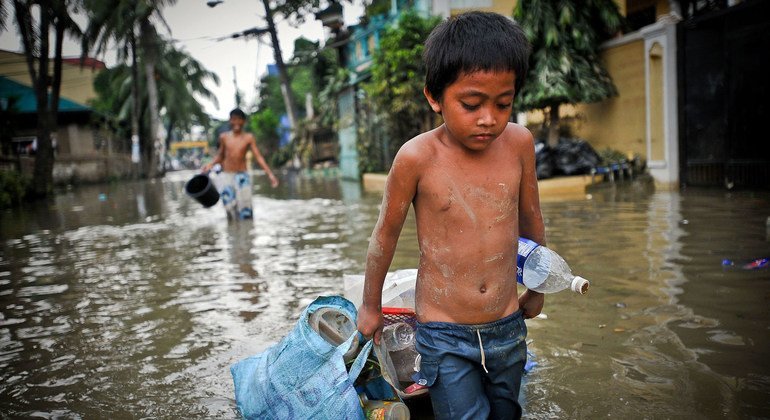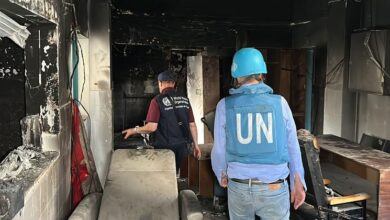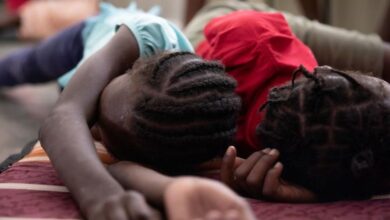The Philippines prepares to welcome more storms during the devastating storm season


Typhoons Kristine and Leon caused widespread damage in the Philippines, leaving thousands of families and children without access to clean water and sanitation facilities.
The 11th and 12th tropical storms to hit the country this year affected at least 4.2 million people – including about 1.3 million children – and displaced more than 300,000.
The water and sanitation crisis is getting worse
Recent storms have exacerbated pre-existing fragility, where access to clean water and sanitation services is already limited. In some communities, open defecation has been reported causing facilities to be washed away, raising concerns about the possibility of disease outbreaks.
“We cannot stress enough the importance of lifesaving supplies during and after an emergency,” speak UNICEF Representative in the Philippines Oyunsaikhan Dendevnorov.
“We are working with our partners to provide water, sanitation and hygiene supplies to affected families and children to ensure they have access to vital measures,” she emphasized. fight the spread of disease”.
As of October 31, the United Nations Children’s Fund (UNICEF) and partners distributed 2,950 hygiene and water kits to families in the hardest-hit provinces of Camarines Sur and Albay in the Bicol Region.
An additional 350 kits will be delivered in the coming days through partnerships with Action Against Hunger and Plan International Pilipinas.
Education is interrupted
The Department of Education estimates that at least 500 schools in the Bicol region need emergency support due to recent storms. disrupting the learning of 20 million children nationwide.
“UNICEF is strong urged schools to remain exclusively for education and not be used as evacuation centers so that children continue to have a stable learning environment,” said UNICEF Philippines Education Director Akihiro Fushimi.
In collaboration with local education agencies, UNICEF plans to provide educational supplies to 14,594 students and 765 teachers in 25 schools and 5 Community Development Centers.
Mr. Fushimi further emphasized: “Ensuring children’s education is not interrupted is a top priority for UNICEF”, and emphasized the importance of giving children a sense of normalcy in a chaotic context. chaos.
A season of uncertainty
The Philippines, the most disaster-prone country in Southeast Asia, faces increasingly frequent and extreme weather events due to climate change.
With hurricanes Marce and Nika affecting many of the same areas last weekend and a new weather system forming that could become Tropical Storm Ofel, recovery efforts are extremely strained.
Despite these challenges, the government has stepped up its response, while UNICEF and partners continue to support communities with vital resources and interventions.
United Nations Resident Coordinator in the Philippines, Gustavo González recently explained in a blog about the growing risk posed by natural hazards to UN News: “As we see, facing natural disasters and vulnerability to climate change has forced Filipinos to cultivate a unique sense of resilience. The spirit of ‘saving lives’ is widespread in the local community.”
He added: “As Filipinos often say, ‘as long as there is life, there is hope’.




